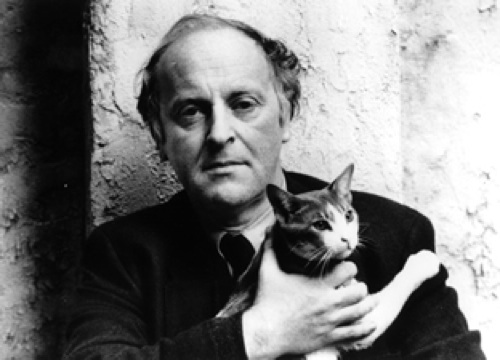Joseph Brodsky's Family Flat to Become a Museum
The New Yorker's Book Bench writes about Joseph Brodsky's Leningrad flat, which he shared with several other families—he and his parents were cordoned off in 430 square feet. Brodsky went on to write about the Soviet housing system in an essay called "A Room and a Half":
Property laws are arcane everywhere, but some of them are more arcane than others, especially when your landlord is the state. … It is the clerks in the borough property office who decide what you are going to get. Bribery is of no use, since the hierarchy of those clerks is, in its turn, terribly arcane, and their initial impulse is to give you less.... Apart from pure arithmetic, what goes into their decision is a vast variety of assumptions never articulated in law, about your age, nationality, race, occupation, the age and sex of your child, social and territorial origins, not to mention the personal impression you make, etc. Only the clerks know what is available, only they judge the equivalence and can give or take a few square meters here and there. And what a difference those few square meters make! They can accommodate a bookshelf or, better yet, a desk.
We wrote about the unveiling of the Brodsky sculpture in Moscow just the other day. Yet it's not the only recent celebration of Brodsky in his home country—looks like this family apartment will be made into a museum (for now, you can view some of his possessions in St. Petersburg's Anna Ahkmatova Museum). Book Bench writes:
Now, or at least in the considerably near future, Brodsky’s bookshelves and desk may be exhibited in their original places in his old flat, which is being converted into an apartment-museum. When the tide of government and literary preference turned, Brodsky, who was never allowed back into the U.S.S.R. after his emigration, finally became in Russia what he had long been in the rest of the world, a celebrated poet.
After much negotiating with the tenants of Brodsky’s former flat—which was still a communal apartment in recent years—a group of foreign and Russian sponsors has raised enough funds to convert the space into a museum. In this clip from a Russian newscast, you can see the apartment in 2010, before the restoration got under way. But the museum remains at least a year in the making, so that the space can be remodeled for the public, and Brodsky’s various possessions can be gathered from the friends to whom they were entrusted for safekeeping decades ago.
Read the entire piece here. The New Yorker also has a long piece about Brodsky, published in May, which reflects on Moscow and Leningrad poetry in the sixties, among other things.



